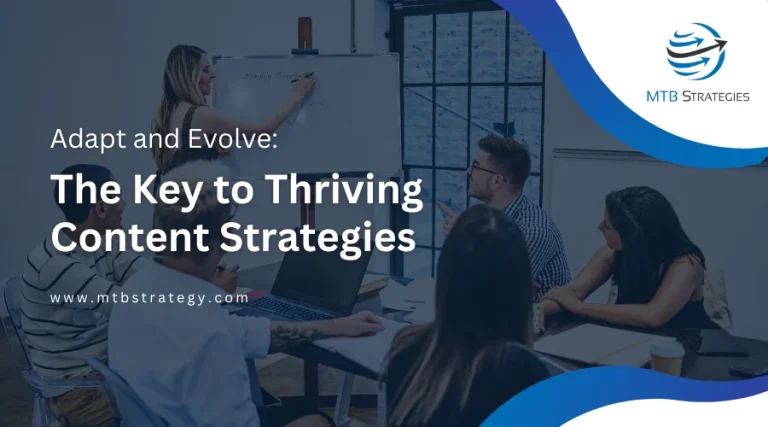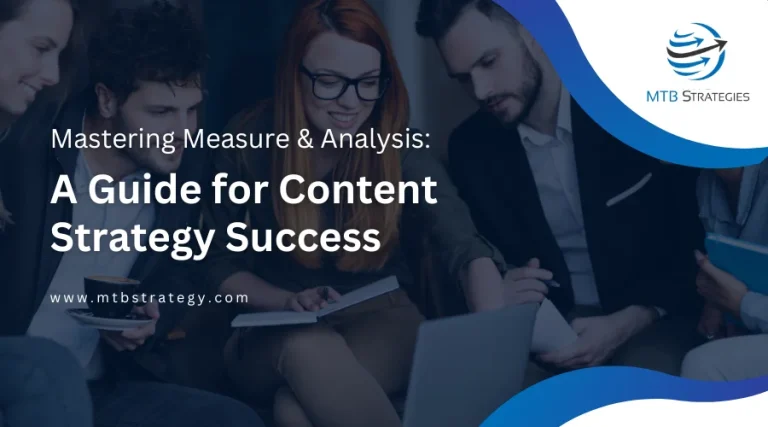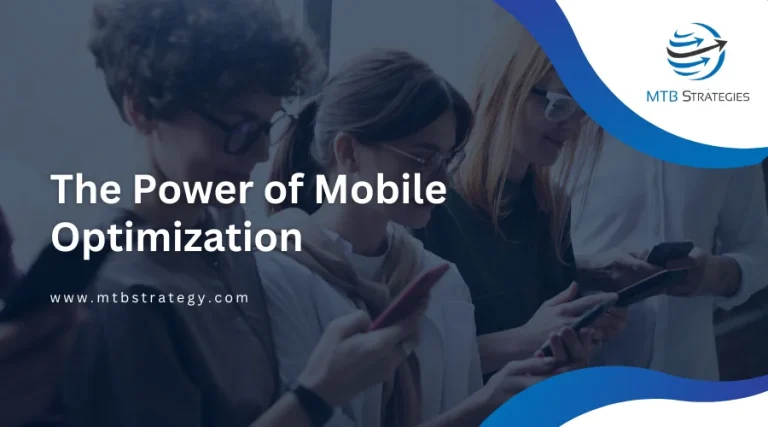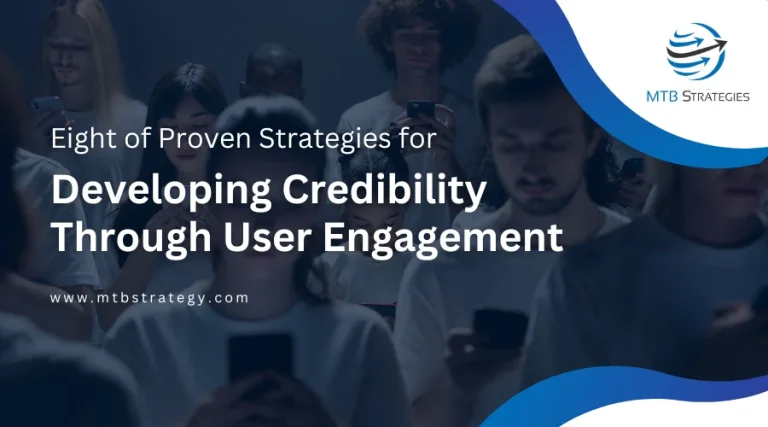Search Engine Optimization (SEO) for Marketers: What You Need to Know
In today’s digital landscape, where the vast majority of consumers turn to search engines to find products and services, mastering Search Engine Optimization (SEO) is no longer optional for marketers—it’s imperative. With search engines evolving and competition intensifying, understanding and implementing effective SEO strategies can be the difference between your brand’s visibility and obscurity.
What Is Search Engine Optimization (SEO)?
SEO, or Search Engine Optimization, involves enhancing your website’s visibility in organic (non-paid) search engine results. By optimizing various elements of your site, you aim to rank higher for relevant search queries, thereby attracting more qualified traffic. Unlike paid advertising, which stops generating traffic once the budget is exhausted, SEO provides sustainable, long-term benefits by building your site’s authority and relevance.
The Business Benefits of SEO
Investing in SEO offers numerous advantages that can significantly impact your business’s bottom line:
Cost-Effective Marketing: SEO often delivers a higher return on investment compared to traditional advertising methods. For every dollar spent on SEO, businesses earn an average of over $22 .Exploding Topics
Enhanced Credibility and Trust: High search rankings signal to users that your site is a credible source. Users tend to trust organic results more than paid advertisements, leading to increased brand trust.
Increased Traffic and Conversions: By targeting relevant keywords, SEO drives high-quality traffic to your site. This targeted approach often results in higher conversion rates as you’re reaching users actively searching for your products or services.
Long-Term Results: Unlike PPC campaigns that stop generating traffic once the budget is depleted, SEO efforts can provide ongoing traffic and visibility, making it a sustainable marketing strategy.
SEO vs. PPC: Understanding the Differences
Both SEO and Pay-Per-Click (PPC) advertising are integral components of search engine marketing, but they function differently:
Cost: SEO requires an upfront investment in time and resources but doesn’t involve ongoing costs per click. PPC, conversely, charges for each click, which can accumulate quickly .Your Marketing People
Speed of Results: PPC can deliver immediate traffic, making it suitable for short-term goals. SEO is a long-term strategy, often taking months to see significant results.
Sustainability: Traffic from SEO is more sustainable over time, while PPC traffic ceases once the campaign ends.Your Marketing People
Integrating both strategies can maximize your online visibility, leveraging the immediate benefits of PPC and the enduring advantages of SEO.
Key Components of an Effective SEO Strategy
Developing a robust SEO strategy involves several critical elements:
Keyword Research: Identify and target the most relevant and transactional keywords for your business. This involves understanding the terms your potential customers use when searching for your products or services .First Page Sage
On-Page Optimization: Optimize your website’s content and HTML source code. This includes using target keywords in title tags, meta descriptions, headings, and throughout the content.
High-Quality Content Creation: Produce valuable, relevant, and engaging content that addresses the needs and questions of your target audience. Quality content is a cornerstone of SEO success.
Technical SEO: Ensure your website is technically sound, with fast load times, mobile-friendliness, secure connections (HTTPS), and a clear site structure.
Link Building: Acquire high-quality backlinks from reputable websites to enhance your site’s authority and credibility.
User Experience (UX): Provide a seamless and enjoyable experience for users, including easy navigation, clear calls-to-action, and engaging design.
Considerations Before Implementing an SEO Plan
Before diving into SEO, consider the following:
Resource Allocation: Assess whether you have the in-house expertise and time to manage SEO efforts or if outsourcing to an agency would be more effective.
Budget: Determine your budget for SEO activities, keeping in mind that while SEO can be cost-effective, it requires ongoing investment.
Goals and KPIs: Clearly define what you aim to achieve with SEO, such as increased traffic, higher rankings, or improved conversions, and establish key performance indicators to measure success.
Should You Hire an SEO Professional?
Deciding whether to manage SEO in-house or hire a professional depends on factors like time, budget, and the complexity of your website. While DIY SEO is possible, partnering with an experienced SEO agency can provide expertise, save time, and potentially yield better results .
Conclusion
In the competitive digital marketplace, SEO is a vital tool for marketers aiming to enhance online visibility, attract quality traffic, and achieve sustainable growth. By understanding and implementing effective SEO strategies, you position your brand for long-term success.
Ready to Elevate Your SEO Game?
If you’re looking to enhance your SEO strategy and drive meaningful results, consider partnering with experts who can tailor a plan to your business needs. Contact us today to learn how we can help you achieve your digital marketing goals.
How is Marketing Related to SEO?
SEO stands for “search engine optimization,” which is what the letter stands for. It’s the process of making web pages rank higher in search engines so that they get more qualified organic traffic, grow brand awareness, and keep brand messaging under control.
SEO is the process of improving your search engine rankings and getting high-quality traffic from sources outside of your website.
Marketers often talk about keywords, the number of searches, Google’s algorithms, and backlinks when they talk about SEO. But SEO is really about getting in touch with your audience when they are ready to take action. It’s important to know what your customers are looking for and why and to be the first one to give them the best answer.
SEO marketing helps you reach your target audience at every stage of the customer journey at a cost per acquisition (CAC) that is 75% lower than paid channels. Because of this, you get more brand touches, leads, conversions, and sales.
Difference Between SEO & PPC
SEO and SEM are both forms of marketing that use search to bring people to your website. But they work in very different ways. When you know how SEO and PPC are different, you can change your marketing mix to get the most out of each strategy.
How SEO Works
From a user experience point of view, SEO is all about making great content that answers searchers’ questions in the best way possible. From a more technical point of view, it means tweaking certain parts of your website to make it easier for search engines to find, understand, and rank your content.
We can find almost any kind of information on the Internet. Still, not many people know how search engines can find answers so quickly. Watch Google’s video about how search engines work for a good introduction.
If you don’t have time to watch it, I’ll tell you the main points that relate to search engine marketing below.
Crawlers read the HTML code on your site to figure out what each page and your site as a whole are for. These bots look at the text and pictures that users see. But they also think about things that users can’t see, like structured data (schema markup) and alt text for images.
They do this for billions of pages on the internet to figure out what each page is about and how it relates to the others.
Then, search engine algorithms rank your content based on certain criteria. For example, do you have content that fits the search terms of a user? Is it safe to use your website? How well does it work on mobile devices? Do you know a lot about the subject?
Several things affect where your site ranks on the search engine results pages (SERPs). The most important signals are how well you optimize your content to rank for relevant keywords and how good of an experience you give your users as a whole.
Also, SEO gives you more say over how Google shows your content to people who search for it. If you use the right code, either by hand or through plugins, you’ll have a better chance of getting featured snippets that make your brand stand out in search results.
How Google Ranks Website
When deciding what to put at the top of its search results, Google uses more than 200 ranking factors. Some things are more important than others, though.
For example, how quickly a page load is important, but how good the content is more important. Also, some meta tags are very important for how well your site does in search, while others, like meta descriptions, have nothing to do with how well your site ranks. Links are important, but backlinks are different from internal and external links in how they work.
It might seem hard to find specific ranking factors, especially since there is so much false information online. But if your strategy is in line with Google’s Quality Guidelines and your business goals, you’ll be on the right track.
Some of the on-page and off-page SEO ranking factors that Google looks at are listed below.
- Keywords in title tags, URLs, headings, and the body copy
- Content quality
- Page speed and how users feel
- HTTP
- Backlinks from sites that are trusted
- Internal links
- The main text
- Mobile-friendliness
Most ranking factors look at how users interact with a page or how well Google understands what a page is about. This is why signals like page speed and internal links are important, but a domain name and word count are not. Google actually tells brands to make pages for people, not search engines.
How PPC Works
With pay-per-click (PPC) advertising, you pay to show up in the advertising sections of the search results. If someone clicks on your ad, you have to pay a fee, even if the user didn’t mean to.
How much you have to pay per click depends on a number of things, such as:
- Number of bids for the keyword
- Amount you are willing to pay compared to what others are willing to pay
- Quality of ads
The benefit of pay-per-click (PPC) advertising is that it lets you quickly send targeted traffic to specific landing pages on your website. This can be especially helpful for things that need to be done by a certain time, like tests, promotions, sales, events, etc.
PPC, on the other hand, is a much more expensive way to get new customers than SEO. Also, as soon as you stop spending money on PPC ads, the traffic stops. There’s no lasting effect or added value, like with organic search. The only way to keep PPC traffic going is to keep putting money into it.
In other words, SEO is a better marketing investment over the long term. If a page ranks on the first page of organic search results, it can keep bringing in visitors for years with little ongoing work. That means that your SEO keeps giving you a better return year after year.
Why SEO is Good for Your Business
The following SEO statistics show how important SEO is for businesses. This is another reason why you should make the organic search a big part of your digital marketing.
As you can see, the benefits of SEO go beyond just getting more people to visit your website. At a high level, SEO boosts organic growth and lowers risk, which leads to more sales and a higher value for shareholders.
Investments in SEO drive increased brand awareness, stronger brand loyalty, lower customer acquisition costs (CAC), and improved brand reputation.
Let’s look at a few real-world examples.
Brings More Leads & Better ROI
When done effectively, SEO drives tremendous sales revenue.
- Every year, there are 2,9 quadrillion searches.
- Google says that the return on investment (ROI) from organic search traffic is 5.3x, while the ROI from paid advertising is only 2x.
- 49% of marketers think that SEO has the best return on investment (ROI) of all marketing channels.
- In general, SEO traffic is 5 times as high as PPC traffic and 10 times as high as social media traffic.
- Up to 70% of the research that people do before they buy a product or service is done online.
Google is an important part of our lives, both at home and at work. We use it to help us decide what to buy, learn more about products, and find solutions to our problems. We use it to find local businesses and decide which pair of running shoes to buy.
With SEO, you can be there for your customers at every step of their journey. It makes sure that your brand is visible from the time a potential customer realizes they have a problem until they buy something from you and even after that.
When you make high-quality content that fits the needs of your audience, you can control the whole marketing funnel.
SEO is an important part of digital marketing and businesses that don’t use it miss out on a lot of potential sales.
SEO can help you reach your goal whether you want to sell more online products, get more leads, make your brand more known, or even get traffic from TV ads.
Lowers Brand Reputation Risk
Most CMOs know that SEO brings in visitors. But it’s also a great way to protect the reputation of your brand.
If someone searches Google for your company’s name or a product, they should find good, relevant information. You don’t want searchers to find old, negative news stories or bad reviews. SEO lets you decide what people see when they search on all of the major search engines.
This is very important for building trust among shareholders since 44% of a company’s reputation is tied to its CEO.
I’m not just talking about making up for a bad name. When SEO is used in a strategic way, it can find weaknesses and strengthen a good search landscape against future problems. So, you’ll shorten the length of a crisis, which will make it hurt your brand’s reputation and sales a lot less.
Leverages Content Quality
Even though how your website works technically is important, what’s on it is even more important. Google says that good content is one of the three most important ranking factors. But what does it really mean for content to be good? John Mueller of Google recently gave a definition:
Mueller went on, “How you put things on your pages, how you use images, and how fast you work are all kinds of things that come into play.”
As you can see, good content marketing doesn’t have to be long or hard to understand. And it’s more than just what’s on one page. To win at organic search, you need to create a culture of content that puts users first. Invest in great content across your whole domain, no matter what form it takes.
In MTB Strategy’s Content Strategy Playbook, you can find out how to do that.
Helps With Search Intent Alignment
What a user wants to do when they type a question into Google is called their “search intent.”
When someone searches for “men’s soccer cleats,” for example, they probably want to see eCommerce product pages. When they search for “best men’s soccer cleats” or “indoor vs. outdoor soccer cleats,” however, they are looking for more informational content.
To get on the first page of Google, you need to know who you’re writing for. Why are they doing this? How do they put together their searches? What kind of format do they expect the content to be in?
Search intent is an important part of search engine optimization because it has a direct effect on how the user feels. If someone is looking for an overview article about a topic and lands on your service page instead, they will probably go back to Google and choose another result. So even if you rank well, that traffic won’t turn into sales if it doesn’t match what people are looking for.
Should You Hire a Professional for SEO?
Whether you should hire an outside company to do SEO or do it yourself depends on three main things:
- Time
- Money
- Risk
Search engine optimization is a time-consuming process that needs a dedicated team of SEO experts to drive business results that keep getting better. People need years of experience with technical optimization, SEO tools like Google Analytics, Search Console, Moz, and Ahrefs, as well as knowledge of keyword research, on-page optimization, content strategy, link building, and more.
So, outsourcing SEO means that a business will get results faster and spend less overall.
It’s important to remember that outsourcing SEO doesn’t mean getting rid of your current team. On the contrary, they are essential to your success when working with a partner. When you hire an SEO company to do the work for you, your team gets fast access to a lot more bandwidth.
Are There Any Drawbacks?
When you choose the wrong SEO company, you run the risk of something going wrong.
It’s not that organizations do bad things on purpose. It’s because most companies don’t know who their market is. They try to work with local businesses, SMEs, and enterprise brands all at the same time. They do this because they think they can get the same results no matter what size of customer they have.
But local SEO is very different from SEO for a large business.
To do well in each of these markets, you need a completely different business model. So, in order to handle bigger deals, they need to either cut corners or hire other people to do some of the work. At first, any SEO company may only get mediocre results. But over time, performance will stay the same or go backward.
How do you know if you’re talking to the “wrong SEO company”? They are like one of these three things:
- Digital marketing firms that do it all
- SEO firms that work with all sizes of businesses
- White hat SEO companies say they can get results quickly and cheaply by using risky SEO methods like buying links from directories and keyword stuffing.
Stay away from SEO companies that do everything for everyone when you’re looking for one. Look for companies that do search engine optimization for brands like yours as their main business.
US-based enterprise brands and Fortune 1000 companies work with MTB Strategy to make SEO strategies and content strategies. If this is you, let us know.
What's More to Come
One thing is certain: SEO will only become more important over time. As the amount of online information available to consumers continues to grow, they will continue to rely more and more on search.
Brands that put more effort into SEO now will benefit for a long time. They will be able to reach a much larger audience, get more leads and sales, and build stronger customer relationships than brands that don’t care about SEO.
NOTE: Bing and Yahoo also search engines, but this overview is mostly about Google because it has the most market share.






